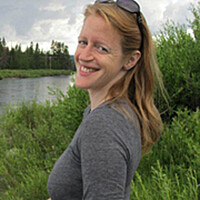What is Earth Hour, and why are the lights out?
Loading...
Around the world, cities and towns are going dark for 60 minutes on Saturday evening to mark the 10th annual Earth Hour, part of a global effort to draw attention to climate change.
The initiative began in 2007 in Sydney, Australia as a publicity effort by the World Wildlife Fund (WWF) to draw attention to the impact of human-caused carbon dioxide emissions on the warming planet.
In 2017, iconic buildings in more than 172 countries will switch off their lights when the clock ticks around to 8:30 p.m. local time, say Earth Hour organizers. While the energy savings will be small in absolute terms, those participating in the grassroots efforts hope they will spur new attitudes toward conservation.
"From the Eiffel Tower to Taipei 101 and the Empire State Building to the Acropolis, thousands of landmarks will switch off their lights in solidarity as individuals, communities, and organizations worldwide deliver on their potential to help change climate change, the planet’s biggest environmental challenge yet," says a statement on earthhour.org.
The list of lights-out landmarks includes many of the world's best known sky-scrapers and buildings, including the world's tallest building (the Burj Khalifa in Dubai), London's Big Ben and Houses of Parliament, Rome's Colosseum, Istanbul's Blue Mosque, Moscow's Red Square, and the Pyramids of Egypt.
In 2016, more than 400 of the world's most recognizable buildings took part in 178 country, says WWF.
“We started Earth Hour to make a statement. Never did we imagine that we would be writing a dramatic new story for climate action where each individual can help turn the page toward a sustainable, climate-resilient future for all,” said Siddarth Das, executive director of Earth Hour Global.
“In ten years, Earth Hour has helped protect seas in Russia and Argentina, raised funds for conservation projects in Southeast Asia and the Amazon, and even created a forest in Uganda," he said. "None of this would have been possible without the force that binds us all together – our collective determination to protect the one planet we all share.”
Armchair activists are welcome, too. "People around the world can log onto earthhour.org/climateaction to donate five Facebook posts to Earth Hour and encourage their friends to be a part of local climate efforts," says the site, which has also created a Facebook profile picture frame.
“Climate change is visible proof that our actions can have a ripple effect beyond physical borders. It is up to each of us to ensure the impact we create helps instead to improve the lives of those around us and elsewhere, at present and in the future,” added Das.
Material from Reuters was used in this report.








